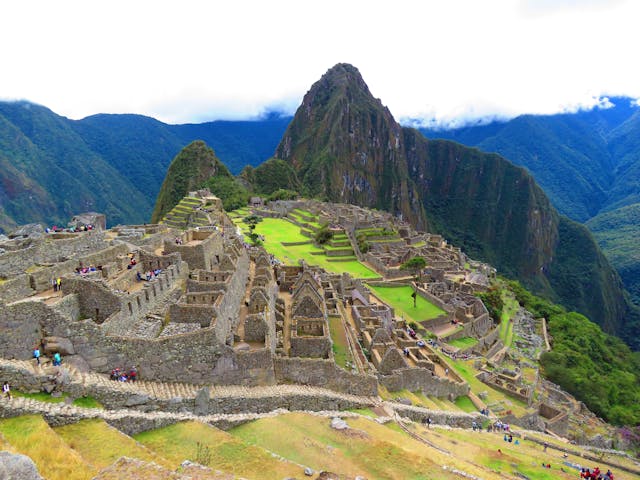The global high-stakes poker scene has always thrived on trust. For elite players risking tens of thousands of dollars in a single session, confidence in the platform is just as important as the cards dealt. That is why regulation matters—and why Peru’s decision to license and monitor online gambling through the Ministry of Foreign Trade and Tourism (MINCETUR) is attracting international attention.
By establishing a clear legal framework in 2023, Peru has moved from a market dominated by offshore operators to one where high rollers can play with greater confidence. For both players and operators, this shift could signal the beginning of a new chapter in Latin America’s regulated high-stakes scene.
Why Offshore Was a Risk for High Rollers
Before regulation, high-stakes players in Peru often turned to offshore platforms. The appeal was simple: big games, fast access, and no restrictions. But beneath the surface, serious risks loomed:
• Funds at risk. Offshore operators had no obligation to guarantee withdrawals, leaving players exposed to delays or non-payments.
• Lack of oversight. Without a regulator, disputes were left unresolved, and software fairness was questionable.
• No player protections. High rollers facing aggressive marketing or irresponsible gaming environments had little recourse.
For players wagering large sums, these vulnerabilities undermined the very essence of high-stakes play: trust in the game.
What MINCETUR Brings to High-Stakes Players
The MINCETUR license changes the equation by setting clear obligations for operators:
• Mandatory licensing. Only approved operators can legally serve Peruvian players.
• KYC and AML standards. Every player, including high rollers, must undergo strict identity checks, preventing fraud and money laundering.
• Responsible gambling measures. Deposit limits, exclusion tools, and oversight mechanisms apply even at the top end of the market.
• Payment traceability. Licensed casinos must integrate approved, transparent payment methods, giving players confidence that their bankrolls are safe.
This framework aligns Peru with international best practices, offering reassurance to professionals and high-net-worth players who demand security alongside excitement.
Why High Rollers Should Pay Attention
For elite players, the most immediate benefit is clarity:
• Withdrawals are guaranteed under regulatory oversight.
• Platforms must use certified, fair software.
• Player rights are protected under Peruvian law.
The framework also opens the door for prestigious operators to invest in Peru, expanding tournament offerings and cash game liquidity. For high rollers, this means bigger fields, better guarantees, and more opportunities to compete in a legitimate environment.
Expert Insight: Jorge Esteban on Trust and Transparency
According to Jorge Esteban, regulatory analyst at MejoresCasinos, Peru’s system offers something offshore markets never could: credibility.
“For high-stakes players, the game is not just about skill—it’s about confidence. MINCETUR’s license ensures that bankrolls are safe, games are transparent, and operators are accountable. That stability is what makes regulation valuable at the highest levels.”
Esteban’s analysis is reflected in MejoresCasinos’ detailed guide to MINCETUR’s online gambling license, which breaks down the system’s requirements and why they matter for different player profiles, including elite competitors.
Peru in the Global Context
To understand the value of Peru’s progress, it helps to compare its framework with other jurisdictions:
• Colombia. Latin America’s regulatory pioneer, with Coljuegos overseeing a respected system. High-stakes opportunities exist, though liquidity remains regional.
• Spain. A mature European market with strong protections but limits on live dealer variety. Still, it shows how regulation can sustain both players and operators under one roof (DGOJ official site).
• United States. State-level models like New Jersey and Nevada show how regional licensing can succeed but also fragment liquidity.
• European Union. Broader frameworks, like the EU’s exploration of digital currencies and the European Central Bank’s Digital Euro project, point toward future integration of payments that could further support high-stakes play in regulated environments.
Placed alongside these, Peru emerges as a promising regional hub: neither a pioneer nor an outlier, but a country advancing decisively toward transparency.
Challenges Ahead
For high rollers, questions remain:
• Will liquidity in licensed Peruvian platforms be strong enough to support high-stakes games consistently?
• How quickly will offshore platforms be restricted or blocked?
• Will operators invest in large-scale tournaments to attract elite international players?
The answers depend on how MINCETUR enforces compliance and how aggressively licensed operators innovate in their offerings.
Opportunities for Affiliates and Operators
Affiliates targeting Peru must now pivot from generic traffic-driving strategies to content that highlights licensed, trustworthy poker and casino sites. For operators, this transition means investing in credibility, showcasing compliance, and appealing to high-value players who demand transparency.
By focusing on licensed ecosystems, affiliates and operators alike can build sustainable revenue streams tied to long-term player trust.
Closing Thoughts
The rise of Peru’s regulated market signals an important shift for high-stakes play in Latin America. Offshore may have offered volume and variety, but it came with unacceptable risks. Under MINCETUR, elite players gain the one asset that matters most at high-stakes tables: trust.
As Jorge Esteban and the team at MejoresCasinos emphasize, Peru’s framework offers more than regulation—it offers credibility. For high rollers seeking both action and assurance, that may be the winning hand Latin America has been waiting for.

